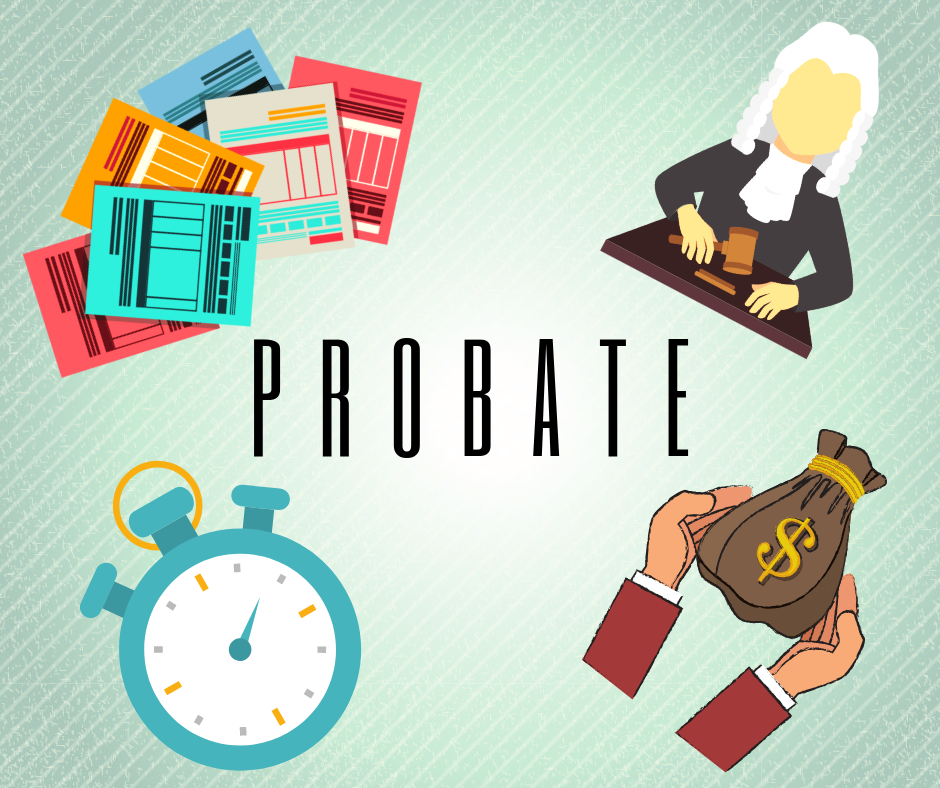The Wisconsin Probate Process

What is Probate?
Probate is a court-supervised process to make sure that the decedent’s (person who passed away) assets will be distributed to the intended people in the manner the decedent wanted done. It can also determine what taxes and debts the decedent owes.
Who needs to use probate court?
Probate is needed for people who pass away with a will (testate) and without a will (intestate).
Probate is not necessary for people who have set up a trust or those whose total assets value less than $50,000. However, having a properly funded trust is crucial. Even with a trust, probate may still be required if the decedent left assets outside of their trust and the value of those assets exceed $50,000.
What happens after someone passes away?
If there is a will in place, the personal representative (or executor) named in the will files the will with the court in order to start the probate process.
If there is no will in place, the decedent’s family may choose a personal representative, subject to court approval. Commonly, a surviving spouse, adult child, or other trusted family member is chosen as personal representative.
Whether someone had a will or not, the court requires several different forms to commence the probate process. The following startup forms are always required:
- Application for Informal Administration (PR-1801)
- Proof of Heirship (PR-1806)
- Consent to Serve (PR-1807) (signed by nominated personal representative and may include Appointment/Acceptance of Resident Agent)
- Statement of Informal Administration (PR-1808)
- Domiciliary Letters (PR-1810)
If you have obtained the signatures of all interested persons on the Waiver and Consent form, the following forms are also required:
- Waiver and Consent (Informal Administration) (PR-1803)
- Notice to Creditors (PR-1804)
If you have not obtained the signature of all the interested persons on the Waiver and Consent form, you will be required to complete this form instead:
- Notice Setting Time to Hear Application and Deadline for Filing Claims (Informal Administration) (PR-1805)
The Probate Registrar may require the following documents, depending on local practice and who the heirs/beneficiaries are:
- Signature Bond in Estate or Trust Proceedings (PR-1809) (or a Surety Bond that is obtained from an insurance agent)
- Affidavit of Service (Probate) (PR-1817)
- Consent to Serve as Trustee PR-1930) (signed by nominated trustee – may include Appointment/Acceptance of Resident Agent)
- Letters of Trust (Informal and Formal Administration) (PR-1931)
- Declination to Serve or Resignation (Informal and Formal Administration) (PR-1802)
- Order Appointing Guardian Ad Litem or Attorney (GF-131)
- Petition to Dispense with Guardian ad Litem (Informal and Formal Administration) (PR-1820)
- Order Dispensing with Guardian ad Litem (Informal and Formal Administration) (PR-1821)
What is the role of the personal representative (executor)?
The personal representative’s responsibilities are to:
- prepare an inventory that identifies and values the decedent’s assets
- manage these assets for the duration of the probate process
- send out formal notices to heirs, beneficiaries, and creditors that are known
- publish a notice in the newspaper to inform all other creditors
- have proof that formal notices and newspaper notices were sent out and published
- determine rights of the surviving spouse regarding marital laws in the state
- pay debts, taxes, probate administration fees, and any other claims
- make distributions per state laws to surviving spouse and children
- make distributions of assets to those named in the will (or to heirs at law if there is no will)
After the assets have been distributed, the personal representative must file a final accounting and closing statement with the court stating that they have paid all debts and taxes, distributed assets accordingly, and filed the accounting. Personal representatives can perform these tasks with or without the help of an attorney.
What is the role of the attorney in the probate process?
A personal representative does not have to go about the process alone. In fact, having a probate attorney assist with the probate process can help speed up the process and can ensure that the personal representative does not run afoul with the law.
Attorney fees are paid out of the decedent’s estate, meaning that the personal representative does not need to use their own funds to pay for the attorney fees.
The probate attorney can also take on different levels of involvement in the estate, depending on the preference of the personal representative. Some executors want to delegate as much work as possibly to the attorney to make things as easy as possible for the executor. And other personal representatives want to stay active and involved in the estate, and only call upon the probate attorney when help is needed.
At Underwood Legal, LLC, we are happy serving in whatever capacity makes most sense to the personal representative. If you have any questions about probate, or about what your duties are as a personal representative, please feel free to contact Underwood Legal, LLC today.
